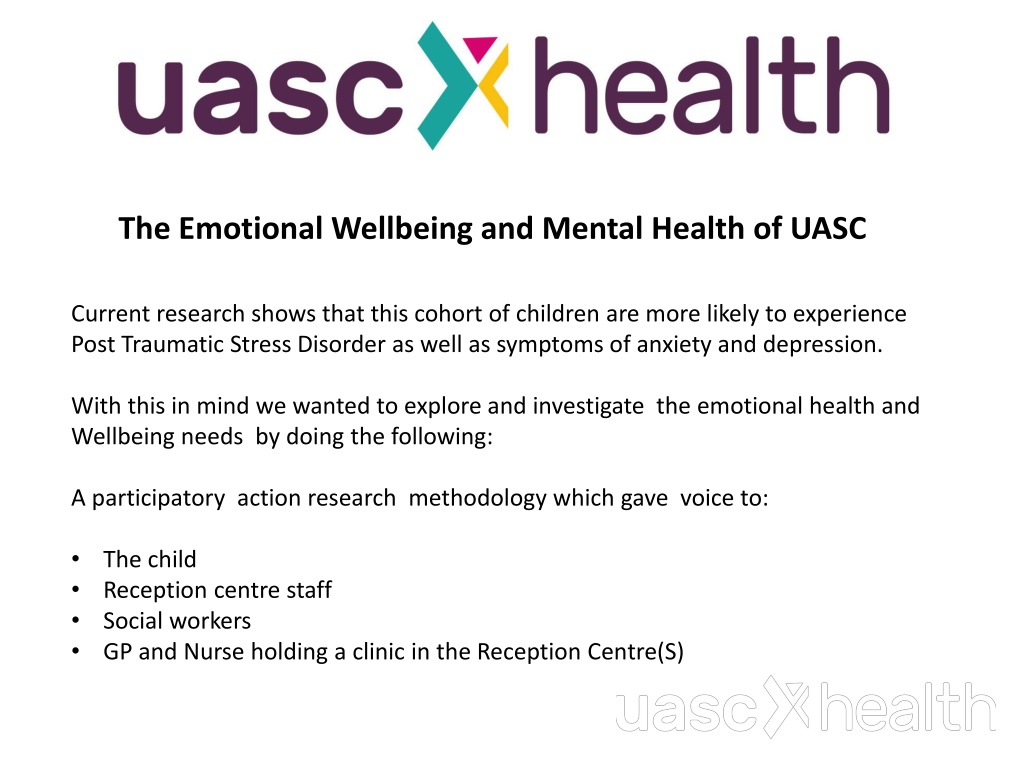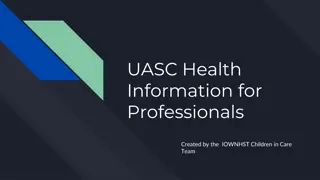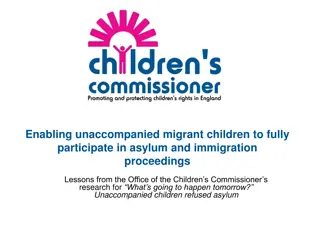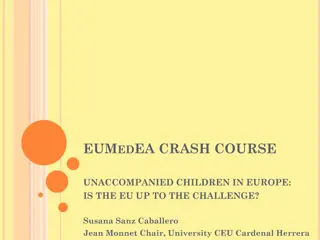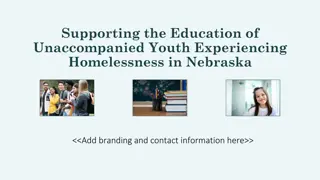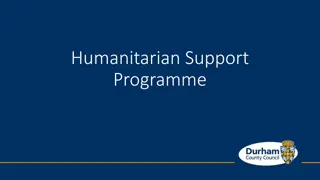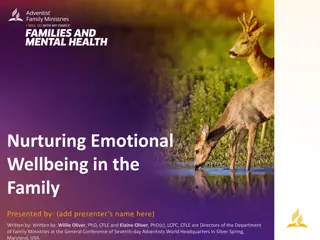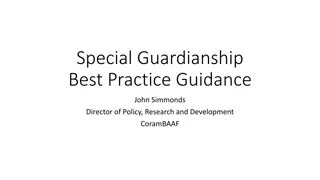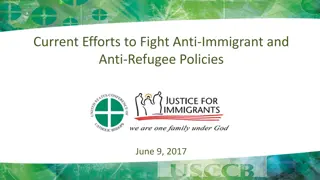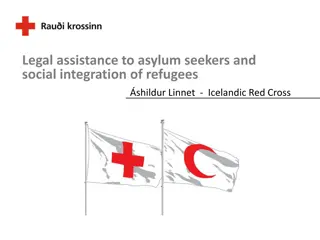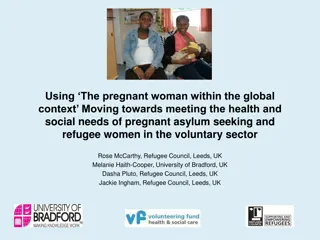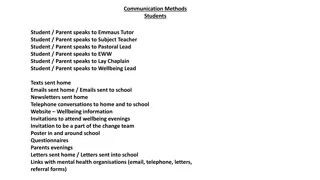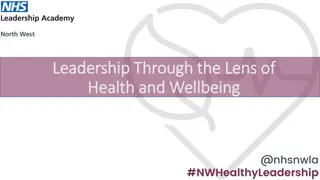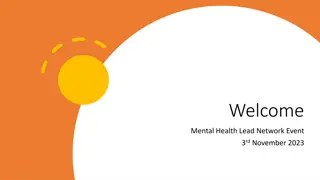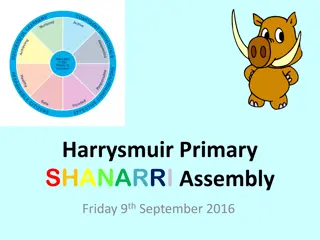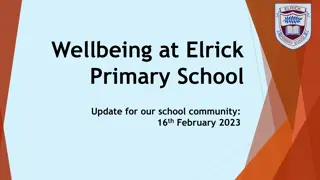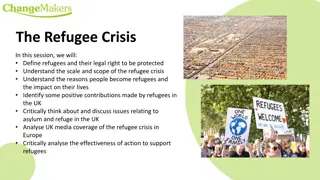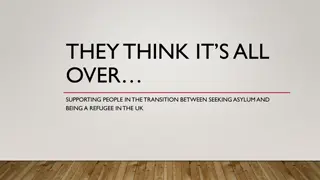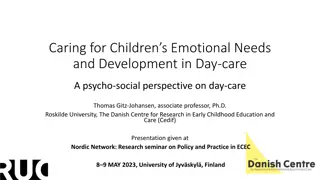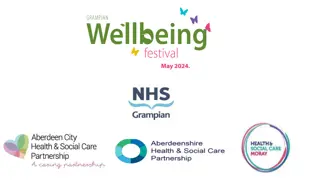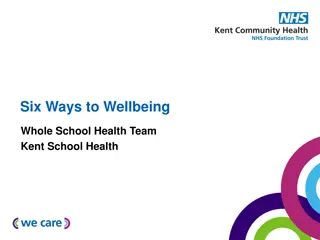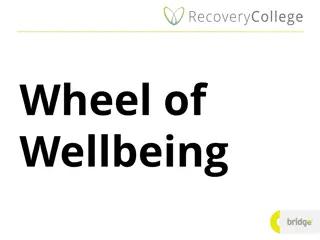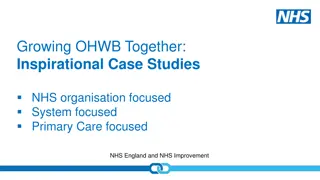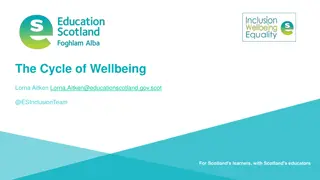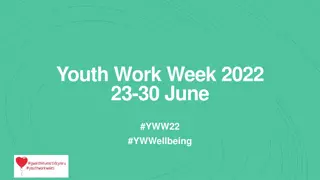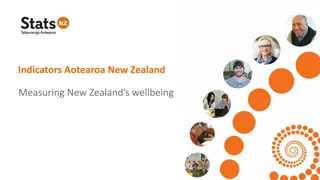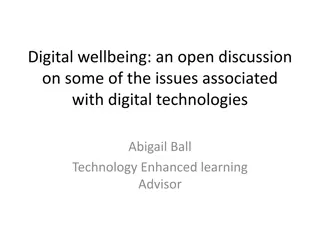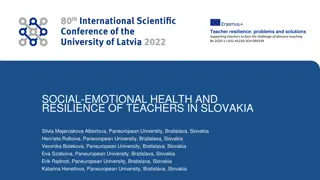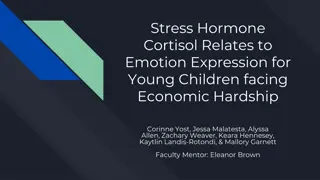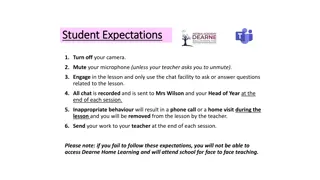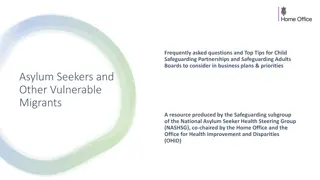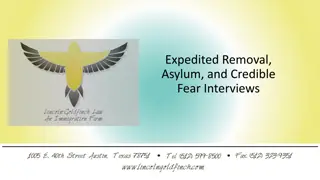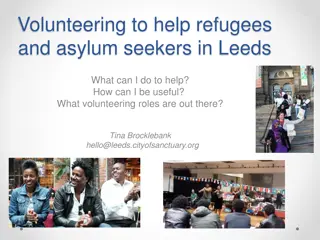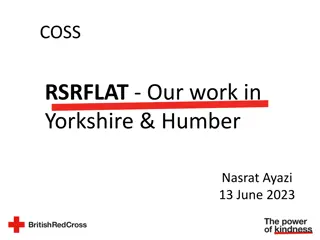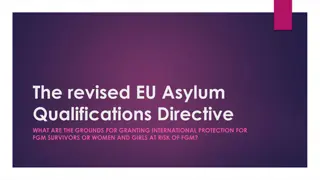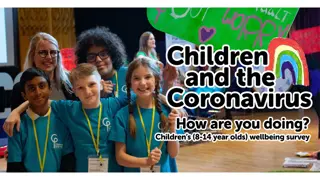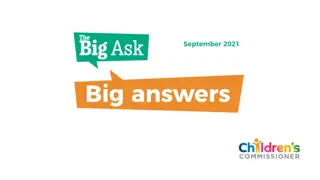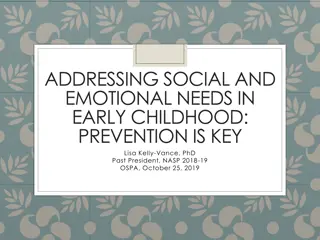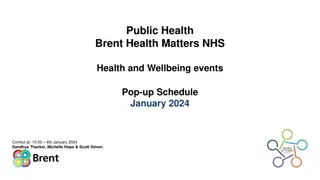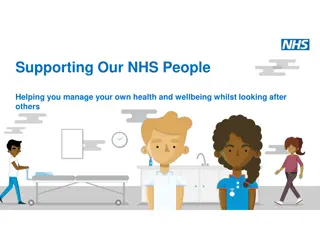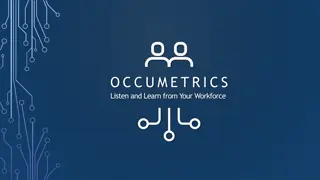Supporting Emotional Wellbeing of Unaccompanied Asylum-Seeking Children
Current research highlights the increased likelihood of post-traumatic stress disorder, anxiety, and depression among Unaccompanied Asylum-Seeking Children (UASC). Through participatory action research, findings reveal challenges like disordered sleep, semi-starvation issues, loss of hope, and trauma symptoms. Initiatives include early intervention frameworks, competencies for professionals, training programs, and interventions addressing sleep patterns and trauma symptoms. The focus is on enhancing emotional health and wellbeing needs of UASC to foster resilience and positive mental health outcomes.
Download Presentation

Please find below an Image/Link to download the presentation.
The content on the website is provided AS IS for your information and personal use only. It may not be sold, licensed, or shared on other websites without obtaining consent from the author. Download presentation by click this link. If you encounter any issues during the download, it is possible that the publisher has removed the file from their server.
E N D
Presentation Transcript
The Emotional Wellbeing and Mental Health of UASC Current research shows that this cohort of children are more likely to experience Post Traumatic Stress Disorder as well as symptoms of anxiety and depression. With this in mind we wanted to explore and investigate the emotional health and Wellbeing needs by doing the following: A participatory action research methodology which gave voice to: The child Reception centre staff Social workers GP and Nurse holding a clinic in the Reception Centre(S)
The Emotional Wellbeing and Mental Health of UASC What we discovered: Disordered Sleep patterns Semi-starvation and re-feeding symptoms Loss of hope Trauma symptoms
The Emotional Wellbeing and Mental Health of UASC What we are doing: An early intervention framework Competency measures for professionals working with UASC A UASC EH&WB Network Training Fitness to travel screening tool Consultation and therapeutic formulation
The Emotional Wellbeing and Mental Health of UASC What the competencies help us to do: https://www.youtube.com/watch?v=PffoAYMrCtA This way every contact counts as a protector of a UASC resilience.
The Emotional Wellbeing and Mental Health of UASC Disordered sleep patterns and what the young People say: https://youtu.be/7pcV7FJp0hU What we are doing: Sleep hygiene education Sleep packs for every child on arrival in Kent A circadian rhythm reset formulation In an audit of the sleep work it showed that 83% reported disordered sleep patterns and of those 92% reported improvement in their symptoms.
The Emotional Wellbeing and Mental Health of UASC From the Kent IHA data we know that 45% of UASC were reporting trauma symptoms. What we are doing: Fast Feet Forward; an early intervention protocol using bi- lateral movement. What has been achieved: A high increase in positive cognitions An ecological reduction in disturbance levels A resource in managing trauma they can use in the future
The Emotional Wellbeing and Mental Health of UASC Case Example: AK is a 17yr old Sudanese Unaccompanied Asylum Seeking Child who had been imprisoned and experienced torture before fleeing to the UK. He left his mother and younger sibling and was terrified that they would be harmed. He reported flashbacks and the inability to sleep in his bedroom as the colour and shape of it reminded him of his prison cell in the Sudan.
The Emotional Wellbeing and Mental Health of UASC Case Example: This is part of the therapeutic conversation with AK two months after the fast feet forward trauma program. In this time he had turned 18, lost his SW, was told he needed to move from his accommodation. His mother who is still in Sudan was ill and needed surgery. He was also awaiting a court hearing and his transport grant had not materialised making it difficult for him to attend college.
The Emotional Wellbeing and Mental Health of UASC Person Ana AK Ana What was said: I can see that lots of difficult things have been happening. Yes, it s been difficult. I m wondering what has helped you to cope; you look different, like you are managing somehow? I did what you taught me. What I taught you? Yes, you know, running. So you ran? Yes when I was sad or scared, I ran. And what did that do? It made it better, it changed things, and it helped me to cope. AK Ana AK Ana AK Ana AK
